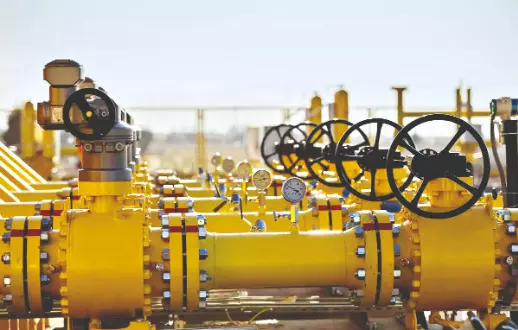PNGRB’s tariff reforms lay basis for clean, affordable energy future

New Delhi: To revolutionise India’s energy sector and create a cleaner, more efficient fuel environment, the Petroleum and Natural Gas Regulatory Board (PNGRB) has sanctioned comprehensive amendments to the Natural Gas Pipeline Tariff Regulations. The reforms, which were approved at a recent board meeting following widespread industry consultation, represent a key regulatory change aimed at easing gas transportation, promoting cleaner fuels, and enhancing the country’s energy security.
At the heart of these reforms is the “One Nation, One Grid, One Tariff” vision, which seeks to create a more integrated and equitable natural gas market nationwide. One of the most significant aspects of the amendment is the streamlining of the natural gas transportation system through the decrease in the Unified Tariff Zones from three to two.
This strategic step is likely to provide a fair and transparent tariff system, rendering natural gas transportation between regions easier and less expensive. Through this reduction in zonal divisions, PNGRB seeks to narrow regional imbalances and integrate backwards areas, especially in far-flung and economically weaker areas, into the mainstream of India’s gas economy.
It is anticipated that this will considerably enhance access to natural gas as well as instil incentives for industries as well as households in these areas to use cleaner energy options. The regulatory shake-up also involves covering the benefit of the lowest uniform zonal tariff, which applies to Zone 1, for Compressed Natural Gas (CNG) and Piped Natural Gas (PNG) Domestic consumers nationwide. The step is aimed at making natural gas cheaper for urban homes and the expanding transport sector that is based on CNG.
Through reducing natural gas prices for these essential segments, the PNGRB is encouraging wider use of cleaner fuels, cutting reliance on dirtier alternatives, and assisting cities in achieving air quality goals.
To stabilise tariffs and improve supply chain efficiency, the PNGRB has initiated new requirements for pipeline operators. Under the new regulations, operators will be required to source not less than 75 per cent of their annual system-use gas from long-term contracts with a minimum tenure of three years.
The movement towards long-term contracting is expected to reduce procurement risks, minimise transaction costs related to short-term gas purchases, and offer greater price stability. The Final beneficiaries shall be investors and consumers, who stand to gain more reliable and lower tariffs as a consequence.
Another important feature of the reforms is the establishment of a Pipeline Development Reserve. This special fund shall be funded through the excess profits of pipeline entities which attain utilisation rates higher than 75 per cent.
Under the new regulations, 50 per cent of such net-of-tax excess earnings will be ploughed back to augment pipeline infrastructure, and the other 50 per cent distributed to consumers by way of tariff rebates or cuts.
This system is geared to promote the circulation of the financial benefits arising from efficient operating performance towards further tightening the nation’s gas web, in pursuance of a gas-based economy.
PNGRB’s recent actions are being welcomed by industry leaders as timely and necessary for speeding up India’s clean energy shift.
With steps addressing entrenched structural inefficiencies, the reforms will be expected to increase natural gas use, facilitate industrialisation, and enable India to meet its climate and energy security goals. Consumers through tariV adjustments—creating a performance-linked, self-sustaining model for growth.
These reforms represent a strategic blend of regulatory innovation and stakeholder-centric governance, ensuring that both consumers and industry players benefit equitably.
By realigning tariff structures, incentivising long-term planning, and reinvesting in infrastructure, PNGRB is laying a strong foundation for India’s cleaner, greener, and more inclusive energy future. Besides, to enable ease of doing business while keeping consumer affordability at the forefront, making natural gas the fuel of choice for India’s evolving energy needs.



